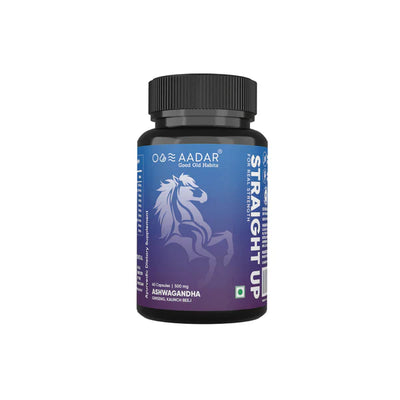Cortisol: Symptoms, Causes, and Treatments of High vs Low Cortisol Level
What is cortisol?
Cortisol, also known as the stress hormone, is a steroid hormone (specifically, a glucocorticoid) produced by the adrenal glands. It is responsible for responding to both physical and emotional stress, and plays a key role in a number of essential physiological functions such as regulation of blood pressure, sleep/wake cycle, and nutrient metabolism in the body.

How does cortisol function in your body?
Cortisol is an important hormone that has quite a few functions in our body.
-
Regulating our body's stress response
-
Helping in suppressing inflammation
-
Regulating blood pressure
-
It regulates blood sugar
-
It also controls the body's metabolism
-
It helps to regulate the sleep-wake cycle
-
Cortisol plays an important part of our survival mechanism
Our body is constantly monitoring our cortisol levels. Higher or lower levels than usual can be detrimental to our health.
What are the normal cortisol levels in the body?
Cortisol levels change in our body with a 24 hours repeating pattern. It follows the sleep/wake cycle and the levels are usually high during the mornings, especially after 30-60 minutes of waking up. The levels gradually decline as the day progresses and reaches the lowest around midnight or 2-4 hours after falling asleep.
Normal ranges of cortisol levels in our blood are -
- 6 AM to 8 AM-10 to 20 micrograms per deciliter mcg/dL
- Around 4 PM-3 to 10 mcg/dL
Normal ranges may differ from lab to lab and also from person to person. If you want to get a test done, then your health care provider will be able to give you results and let you know if you need further testing.
Blood cortisol levels are best tested around 8 am, right after waking up after fasting overnight.
Chronic stress or a genetic condition can cause cortisol levels in the blood to be consistently high over time, resulting in health consequences. Chronically high cortisol can cause the following symptoms:
- Depression
- Fatigue
- Anxiety
- Conditions like constipation, bloating, or diarrhea
- Heartburn
- Headache
- High blood pressure
- Problems with memory and concentration
- Reproductive issues like low libido, erectile dysfunction, or irregular menstruation and ovulation
- Difficulty in sleeping
- Gaining weight
Hence it is important for people to get their cortisol levels checked so that they can treat it if needed. High cortisol levels can also lead to Cushing’s Syndrome which has severe symptoms as well. So it is important to get your cortisol levels checked if you are experiencing any of the above symptoms.
High cortisol treatment
It is also important to manage the stress levels since chronic stress is known to increase cortisol levels. During these challenging times, because of the ongoing COVID-19 pandemic, you must indulge in regular physical activity, mindfulness, meditation, and journaling to help you manage your cortisol levels.
The importance of maintaining cortisol levels in your body
Maintaining an optimum cortisol level in the body is essential as it plays a significant role in keeping the body healthy. Here are some of the important functions that are regulated by cortisol levels in the body.
- Proper sleep cycle
- Controlling the salt and water balance
- Regulating blood pressure
- Regulating growth
- Helps with anti-inflammation
- It also helps with memory formation
- Helps one wake up in the morning
- Regulates the immune system functions
Frequently Asked Questions
What happens when cortisol levels are high?
When cortisol levels rise in the body because of chronic stress, then people start experiencing certain consequences. Some common symptoms include anxiety, fatigue, depression, high blood pressure, and headache.
The severity of Cushing's syndrome depends on how high your cortisol levels are. Cortisol levels that are higher than normal can cause the following symptoms:
- You gain weight, especially around your face and abdomen.
- You have fat deposits between your shoulder blades.
- Your abdomen (belly) has wide, purple stretch marks.
- Your upper arms and thighs are weak.
- Type 2 diabetes is often caused by high blood sugar.
- Hypertension (high blood pressure).
- A condition in which people born female have excessive hair growth (hirsutism).
- Fractures and weak bones (osteoporosis).
What does low cortisol mean?
Low cortisol levels in the body can result in Addison’s disease. Some of the common symptoms of Addison’s disease includes-weight loss, dizziness, chronic fatigue, loss of appetite, darkening scars or skin creases, and more.













